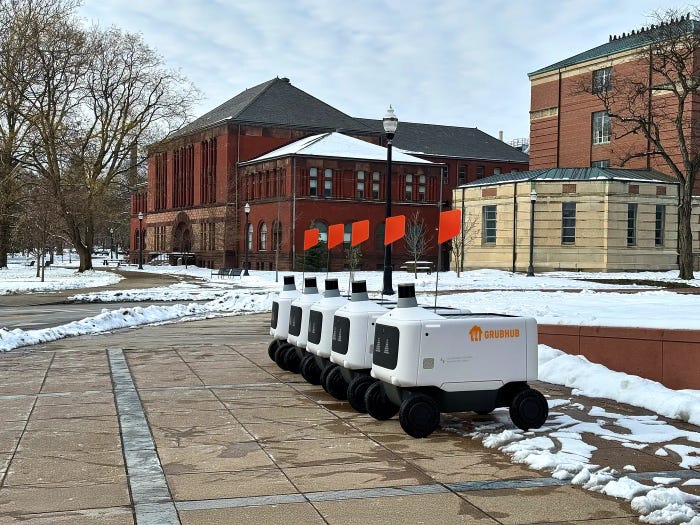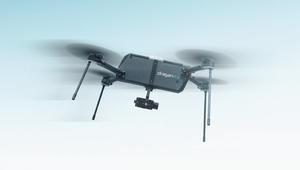Waymo Hunt for Smoking Gun Turns to Uber Acquisition ReportWaymo Hunt for Smoking Gun Turns to Uber Acquisition Report
Waymo says proof that its former engineer colluded with Uber Technologies Inc. to steal driverless technology can probably be found in a report the ride-hailing company commissioned in anticipation of a lawsuit.
May 30, 2017

Now, the Alphabet Inc. unit is fighting to get ahold of the document as it prepares to go to trial against Uber in a trade-secrets case that could influence who wins the race to market self-driving cars.
Since Waymo sued in February, Uber and engineer Anthony Levandowski have steadfastly refused to turn over a due diligence report evaluating the risks associated with Uber’s acquisition of Otto LLC, the company Levandowski formed days after he quit Waymo. They argue it can’t be disclosed because it involves confidential communications between attorneys and clients.
Waymo claims that in 2015, Levandowski and Uber hatched a plan for him to steal more than 14,000 proprietary files, including the designs for lidar technology that helps driverless cars see their surroundings. Levandowski left Waymo in January 2016. Uber bought Otto in August for $680 million.
Levandowski, who isn’t a defendant in the lawsuit, has refused to testify, asserting his constitutional right against self-incrimination. Waymo argues that because he won’t answer questions about his negotiations with Uber and the allegedly stolen files, the information must be extracted from Uber, which as a corporation isn’t afforded the same constitutional protections as individuals.
The due diligence report “likely contains information that is responsive to many of the questions Mr. Levandowski refused to answer,” Waymo argued in a court filing. “Indeed, the withheld report may be the only source of much of this information.”
‘Red Flag’
U.S. Magistrate Judge Jacqueline Scott Corley said at a hearing Thursday in San Francisco that based on her closed-door review of the document, it’s important to the case and would need to be shared with Waymo unless there’s good reason to keep it secret. She didn’t reach any conclusion about whether Uber was justified in withholding it.
Corley also said Uber’s redactions to the documents it has disclosed that lay out the terms of the Otto acquisition and its unwillingness to share the entire term sheet with Waymo “raised a giant red flag.”
“What are you hiding?” she said. “What is the basis as you stand here today to continue to withhold that information from Waymo?”
She concluded there’s no basis for it being kept confidential and ordered Uber to turn it over by the end of the day.
Uber has denied Waymo’s trade-secret theft allegations and says its automation technology has been developed without significant input from Levandowski.
‘Strong Showing’
U.S. District Judge William Alsup, who is overseeing the lawsuit, has expressed frustration with the shroud of secrecy around Uber’s dealings with Otto. In a May 11 ruling, the judge said it appears as if Uber “performed specialized ‘due diligence’ on Levandowski” to gird itself against any possible lawsuit “as a result of his move to Uber.” Concluding Waymo “made a strong showing” of trade-secrets theft, the judge asked federal prosecutors to investigate Waymo’s claims.
“How common is it to have an acquisition where every single document that bears on the acquisition is cloaked in privilege under a joint defense agreement?” Alsup asked Waymo’s lawyer, Charles Verhoeven, at a May 3 hearing.
“I’ve never seen it, your Honor,” Verhoeven said.
Alsup has tasked Corley with deciding whether the due diligence report must be turned over to Waymo.
A lawyer who represented Levandowski in the Otto deal with Uber explained the rationale for the report in a court filing.
“The litigation risk was particularly high due to the intensely competitive nature of the self-driving vehicle industry and the potentially billion-dollar commercial market involved,” the attorney said.
Uber spokeswoman Chelsea Kohler said Waymo isn’t legally entitled to see the report.
‘Sacred’ Privilege
“The report is protected by attorney-client privilege, which is the most sacred and important privilege in our entire legal system,” she said in an email. “The law simply does not support Waymo’s attempt to gut those privileges.”
A lawyer for Levandowski, Ismail Ramsey, told Corley his client has his own grounds for keeping the report secret.
Waymo spokesman Johnny Luu declined to comment ahead of Thursday’s hearing, as did the cyber-security firm that prepared the report, Stroz Friedberg.
Waymo argues that because the report wasn’t produced by lawyers, attorney confidentiality doesn’t apply. The company also contends the document doesn’t qualify for privacy protection because it may reveal fraudulent or criminal wrongdoing.
“There is substantial evidence that defendants and Mr. Levandowski were engaged in or planning a crime,” Waymo said in a court filing.
Uber countered in a filing that “Waymo has not even attempted to identify evidence that meets the elements of any ongoing crime or fraud.”
The case is Waymo LLC v. Uber Technologies Inc., 17-00939, U.S. District Court, Northern District of California (San Francisco).
About the Author
You May Also Like
.jpg?width=700&auto=webp&quality=80&disable=upscale)
.jpg?width=700&auto=webp&quality=80&disable=upscale)

.jpg?width=300&auto=webp&quality=80&disable=upscale)


